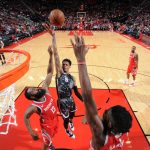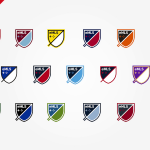Living The Dream: Why Fantasy Sports Are A Billion-Dollar Business And Still Growing
Baseball? Try snooker. These days, millions of players are betting on much more than just box scores.
One fall day last year, Joe Scialabba was at a church picnic with his family and feeling very annoyed.
For weeks, Scialabba, a 50-year-old administrator at a small Pennsylvania college with a long history of sports fanaticism, had been leading in his fantasy league. But the day before—the penultimate day of the season—he’d done so poorly that he needed to do very, very well on this last day to hang onto his top spot. He wasn’t optimistic, and didn’t even bother checking stats on his phone the entire day. Later that night, on a conference call, he absentmindedly looked at his email and saw that he’d gotten the day’s results.
“I ran across the house to my wife, who was doing some work on the computer, and said, ‘I won!’” he recently told me over the phone. “She kinda looked at me and said, ‘Well, did you?'”
The Breeders’ Cup is one of the country’s premier horse races; Scialabba, once a college golfer, an avid fantasy baseball player, and a former basketball coach, had spent months emotionally invested in fantasy horse racing. When he told his friends about his win, Scialabba said, “They were, like, ‘Wow, I didn’t know you were into this.'”
Beyond horse racing, Scialabba is deeply into fantasy sports, which he’s been playing since the late 1980s. He’s far, far from alone. According the Fantasy Sports Trade Association (FSTA), more than 41 million people in the United States and Canada play fantasy sports in some capacity, spending in excess of $2 billion on league fees, challenge games, and more. This huge volume of attention and money has driven the creation of ever-more byzantine gaming options in the country’s most popular sports: football, baseball, and basketball. The interested player can now compete not just across an entire season, but, thanks to an innovation called “daily fantasy,” in just a few hours, by assembling a few players competing in some number of games and seeing how they stack up against each other.
The wild growth in daily fantasy in just the past few years has also encouraged established media brands—that often own the news sites on which fantasy players are constantly refreshing their stat—to establish their own fantasy games and try to capture a piece of fantasy revenue. ESPN, CBS, Yahoo, Sports Illustrated, and USA Today (owner of sites like The Big Lead and HoopsHype) all have their own fantasy components. USA Today even launched its own stand-alone site, FantasyScore, with much fanfare in 2014.
Now the fantasy explosion has pushed interest not just deep into mainstream sports, but outwards, emboldening a raft of—let’s be honest here—lower-shelf sports to get in on the game. Horse racing, hockey, snooker (snooker!), sailing, dogsledding, mixed martial arts, and professional bowling, to name a few, would all love for you to play the fantasy version of their sport.
But how much do the players care? And what exactly do these sports hope to get out of investing in building compelling fantasy games?

Most fantasty games are now played online and through apps. Logging onto fantasy sites like FanDuel, one of the industry’s two biggest, can be a dizzying experience for a novice. Lists of fantasy games spool out in seemingly endless gray boxes on the front page, with names like “$125K Sat NBA Slam” and “$25K Fri MLB BIG Double Up ($10).” They pulse yellow in strange and unpredictable combinations. Prizes for games—and, on rare occasions, entry fees—can run into the tens of thousands of dollars.
Scialabba’s game was Million Dollar Finish, sponsored by the Breeders’ Cup. It revolves around predicting the outcomes of newly introduced summer-long series of qualifying races for the Breeders’ Cup Classic. I recently met two of the men who helped invent it, Justin McDonald and Chris Russo, for lunch at a fancy Manhattan restaurant. McDonald, 39, is a well-built former ad executive who jumped ship to become a vice president with Breeders’; Russo, 50, is a well-dressed gentlemen who helped the NFL capitalize on fantasy sports in the early 2000s and later built a company, Fantasy Sports Ventures, which he sold to USA Today (he’s now the CEO of Fifth Generation Sports, and a consultant who works with clients like Breeders’).

“The Derby, it’s $2.5 million [for the winning horse],” says McDonanld, explaining why they repeatedly refer to their race as the Super Bowl of racing, or, other times, the richest two days in racing. “Our big race is the Breeders’ Cup Classic, and the purse is $5 million for that one race.” It attracts celebrities of all stripes, including former Yankees manager Joe Torre, 30 Rock star Elizabeth Banks, and model Kate Upton. Plus, horse racing is the only sport that’s legal to wager on in the United States outside of Las Vegas. One might think this would make fantasy—essentially a legal stand-in for more old-fashioned wagering—unnecessary. Not so, they explained. For one thing, people who might never gamble in their life might still be open to fantasy sports.
“The process of signing up for a betting account is a little intimidating,” said McDonald. “You have to give your Social Security number, it’s very highly regulated. We’re probably going to lose you. But if I give you another message that says free to play, easy to sign up, just try this out and watch the race, and you could win a million bucks, you’re probably more receptive to that message.”
Another advantage is reaching younger fans. While the traditional horse-racing fan is old and getting older, the average fantasy player is in the highly coveted 18-to-49 demographic, with daily fantasy players usually in their mid-20s. “We’re trying to attract younger fans, and we know where they’re living in that fantasy space,” said McDonald. “So we need to figure out the right way to get in front of them with our product and show them how much fun horse racing is and how we can be involved.”
While he was with the NFL, Russo explained, “We did really legitimate, very in-depth, and smart research that showed that if you played fantasy, you watched 2.2 hours more of NFL football each week. So the concept when you bring that to other sports is that if you can get people more invested in the outcome of the races, they’re more excited, they’ve got more of a stake in it, and they’re going to watch more.”
So far, it seems to be working. In the program’s two years, its number of players has grown more than 100%. McDonald and Russo say of those players, a full 61% were completely new to the sport’s databases.
NASCAR—which, if you think about it, is basically just horse racing with cars subbed in—has built its own game for very similar reasons, though it started from a very different place.
In 2007, NASCAR sold all of its digital rights to Turner Sports in what what one blogger called “one of the worst media contracts in professional sports.” This effectively gave an outside company complete control over NASCAR’s online presence. As Turner launched and relaunched websites and created its own versions of fantasy, NASCAR was effectively unable to intervene. This arrangement ended in 2012 when NASCAR bought its rights back.
“When we took the site back over, we really wanted to make fantasy one of our tentpole experiences for fans of the sport, and a way for us to create some deeper levels of engagement with those fans,” said Colin Smith, vice president of NASCAR Digital Media. Now, NASCAR has three separate games played by over a quarter of a million people, making fantasy one of the most popular portions of its website. “Fantasy is a big deal for us,” Smith says.
Like Breeders’, NASCAR sees its real audience stagnating or declining. It sees its fans increasingly consumed with watching their phone instead of the live event, and are worried about being left out—executives from both sports, their voices full of gravitas, frequently used the phrase “second screen experience.” And, at a very basic level, they know that there’s money to be made in fantasy, and they want their piece.
For winning his season of fantasy, Scialabba was flown out to see the 2014 Breeders’ Cup Classic In Santa Anita. It was his first trip to California. He brought along a friend. When I asked why his wife didn’t come, he laughed and said, “A lot of people have asked that. She’s not a huge horse-racing fan. She doesn’t mind watching, but she’s definitely not into it.”
If he correctly picked the 10 finishing horses, in order, he would have won the titular million dollars—and those dollars would’ve been very real. In the end, Scialabba didn’t win, but enjoyed the experience, which included being interviewed as part of NBC’s broadcast of the race. “They put my picks up on TV,” he remembers. “That was pretty cool. I did pretty good! If Shared Belief hadn’t been knocked over at the beginning of the race, I might have had a chance.”
In fact, he does have another chance: Scialabba plans to play again next year.
[Mash Up: Joel Arbaje for Fast Company, Source Photos: Flickr users Yongseok, and Konstantin Matern]
Fast Company , Read Full Story
(230)














